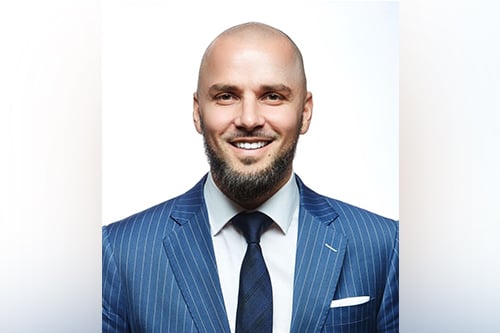Vreeland has taken bits and pieces of strategy and structure from various companies to get to $70 million, but advises against listening to top producers

Jordan Vreeland likes relying on himself. He knows that he’s competitive, he’s tenacious, and he’s developed a reputation of having a work ethic that few other mortgage originators share.
“You can’t bet on others. That’s why I don’t like having a bunch of loan officers, because you’re basically betting on their work ethic. And if five of them quit, you don’t make any money. Or if 10 of them quit, you’re done. I’ve had those models in the past, but I think the biggest thing coming back now is, just bet on yourself.”
Vreeland is a producing manager at Paramount Residential Mortgage Group, a company that offers a rather robust marketing campaign strategy and system. As a self-proclaimed “nerd” who loves systems and technology, that’s right up Vreeland’s alley. In fact, if Vreeland could take advantage of everything that can speed up the process without having to hire more staff, he would.
“If I could hire less people and use technology more, then I don’t have to babysit, I don’t have to give a Tony Robbins speech every Thursday,” he said. He also recognizes the limitations of technology. “Tech is awesome, but you have to be very careful. It can propel a lot of careers but it can kill you too, if you have somebody that’s leading the ship that was never a producer or really has never been.”
Growing is tough, he said, and sometimes it’s not all that it’s cut out to be, depending on the sacrifices that have to be made to serve that growth. Vreeland learned the ropes by cold calling as a way to make money during college. After a couple of years, he was offered a job as a loan officer, but he wanted to continue going to school and playing basketball full-time. Upon graduation, he wanted to get into pharmaceutical sales, but after dozens and dozens of interviews and trying a couple of entry level positions that he hated, he went back and dove head-first into origination.
He started his own company, making “tons” of mistakes. At the beginning, he thought he’d rather make those mistakes on his own than work for a company where he couldn’t grow or where people weren’t invested in teaching him. He hit all of his goals, but as a one-man show, he lacked a certain amount of structure and professionalism in his business. When he went to Bank of America, he was able to fill some gaps in his knowledge, even though it wasn’t the right place for him in the long run.
“You can’t make money in that model at major banks, you can’t. They’re going to keep changing your structure so they’re going to limit you all the time, and that’s their model and it works for them. But the one thing they did well, they have really good structure. I’m sure they spent millions of dollars on consultants and systems, but one thing you could pull away was how they [were] structured, how they were organized, how they used systems to their advantage,” he said.
Vreeland has spent 23 years in the mortgage industry and still attacks the business seven days a week. While the ultimate goal is to be able to focus on his other priorities, he knows that clients and referral partners aren’t going to wait for originators who are always out of the office.
“Family’s most important, you want to have your family time; work out, keep in good health; and then you’ve got to work,” Vreeland said. “There’s obviously other things . . . But those three things, if they come first, you’ll be well rounded and you can do whatever you want to do on the side.”
Originators often have lofty goals, but the execution, Vreeland says, is “awful.” It’s not for lack of trying; Vreeland has seen peers and executives alike go to seminars and conferences, get inspired by a new strategy, then rush to implement it right away. Vreeland says that without properly vetting the source or adapting the business model, however, that system probably isn’t going to work. He says that originators would probably have more success if they stopped going to seminars and listening to top producers altogether. A lot of the oft-touted advice is unspecific and therefore unhelpful.
“A lot of the top producers, that’s what their thing is: ‘Go out there and work hard.’ From top down, that’s the thing. But say it was a bad idea, and [they don’t] tell you how to implement it,” Vreeland said. A coach, on the other hand, is different. “A coach like [Boston Celtics’ coach] Brad Stevens . . . he’ll call a time out and say, ‘you stand here, you go there, you pass here.’ Cool, thank you. Understood. Let’s go out there, implement, we score, we won. You need that. You don’t need, ‘Go out there, and everybody run fast down the court and run them over.’”
Last year, Vreeland closed more than $70 million. He’s continuing to grow, but does so purposefully, and with great intention. Despite his love for technology and systems, his success doesn’t come through the adoption of everything that’s offered. He’s picked and chosen the things that have worked best for him, and left everything else behind.
“Be optimistic, look for the positive and keep going. Keep trying to pull and extract the data that you want,” he said. “That’s what I did and I sort of created my own beast . . . I’ll never lose touch with it, because I want to make sure I’m relevant. I do not want to turn into a coach, but if I say this system’s good, it means I’m actually testing it, watching it, listening to it. I just keep molding it to make it better, like a snowball.”



